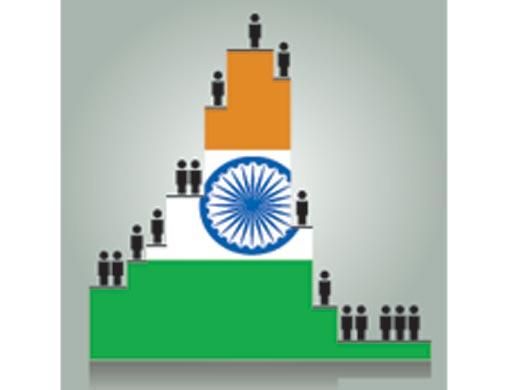After Jawaharlal Nehru assumed power as India's first prime minister it was expected that he would build it up as a welfare state. But when it came to writing the Constitution, even the word socialism did not figure in the 395-Article document. His daughter, Indira Gandhi, added the word socialism, in the preamble of the Constitution and that too during the emergency in 1975 when fundamental rights had been suspended.
It is strange that Nehru opted for caste, not class, while spelling out benefits for the economically backward. The achut (untouchables), presently called the dalits, were at the lowest rung and given, along with tribals, a quota of 22 per cent in jobs, admission to educational institutions and the legislatures. Still there was nothing given to Other Backward Classes (OBC), including Muslims, who were in no better shape than the dalits except that they did not face unsociability. Some 40 years later, the OBC too got the same concessions but without reservations of seats in state assemblies and the Lok Sabha (lower house of parliament).
A few days ago, the Supreme Court upheld the law to extend to the OBC reservations in top institutions of high learning. The court accepted the plea to treat the dalits and the OBC on par.
Total reservations have now come to 49.5 per cent. This has hit merit. The upper castes are angry but getting reconciled to the situation. No political party has made it an issue. Since this is the election year, none wants to take the risk of alienating the dalits, tribals or other backward classes which include Muslims and Christians. If they are all put together, they command more votes in the country than the upper caste Hindus.
Yet, social reforms which are carried out through law courts have legitimacy, not conviction. The society becomes more unequal. This is the biggest challenge that India has faced for centuries. It has banned discrimination but the 3,000-year-old caste system still allows the practice and the press is full of atrocities against dalits even today.
Optimistic phenomenon
Despite the dismal scenario, an optimistic phenomenon is emerging. A dalit is no more on the defensive to own his identity. He has come to assess the value of his vote and has begun to believe that he is in a position to swing the balance in favour of the party which delivers him goods. For years, the Congress had the dalits as its vote bank. But the party has more or less lost it. Now he wants the party of his caste to win. He has already returned Mayawati, a dalit, to power. She is the first dalit chief minister of Uttar Pradesh, the largest state in the country. Other backward classes too have asserted and installed in five states their own men as chief ministers.
In any case, the disparity in economic terms has come to matter, not so much the caste. If only Nehru had the vision to realise this when the Constitution was introduced in 1951, he would have known that the pattern of poverty in India was woven in such a way that caste and class were coterminous. He could have laid the foundation for a real welfare state without the stigma of caste, socially and economically.
Dr B.R.Ambedkar, then Law Minister, is a Gandhi for the dalit. He did not want reservations because he considered them crutches. After a lot of persuasion, he had the quota system included in the Constitution with a proviso that all types of reservations would end within a decade. But the electoral politics in India took such a shape that reservations became a necessity for the then ruling party, the Congress, to win. The Constitution is amended unanimously every 10 years to extend reservations for another 10 years. All political parties have developed their own leaders in different castes. All of them treat reservations like a holy cow. Vested interests have developed to keep the caste and OBC quotas intact.
The Supreme Court's judgment has done one thing: It has stopped reservations to the OBC creamy layer in higher learning institutions. For reasons best known to the Supreme Court, the creamy layer among dalits and tribals has escaped any mention in the judgment. The OBC creamy layer, at present ministers at the centre and in the states and civil servants occupying high positions, wants it to continue to get what the general run of its community is entitled to. This is not fair because concessions are not reaching the lower layers. The Supreme Court's decision to peg the creamy layer down to an annual income of Rs200,000 (Dh18,900) is not low as the OBC creamy layer argues. In a society where 70 per cent of people earn less than Rs5,000 a year, the limit is quite high.
The larger question which India faces is the duration of reservations. According to the Constitution, they should have ended in 1960. How long more? The youth outside the orbit of reservations is increasingly getting agitated and even desperate. No doubt, prosperity will one day span disparities. This means many, many years to come. The quota does not fit into a democratic system. There has to be an equality of opportunity.
India should probably adopt what America has done: the affirmative action in favour of blacks. The yardstick should be a person's economic conditions. In any case, the criterion to backwardness should not be assessed on the basis of either colour, caste or creed.
Kuldip Nayar is a former Indian High Commissioner to the UK and a former Rajya Sabha MP.











